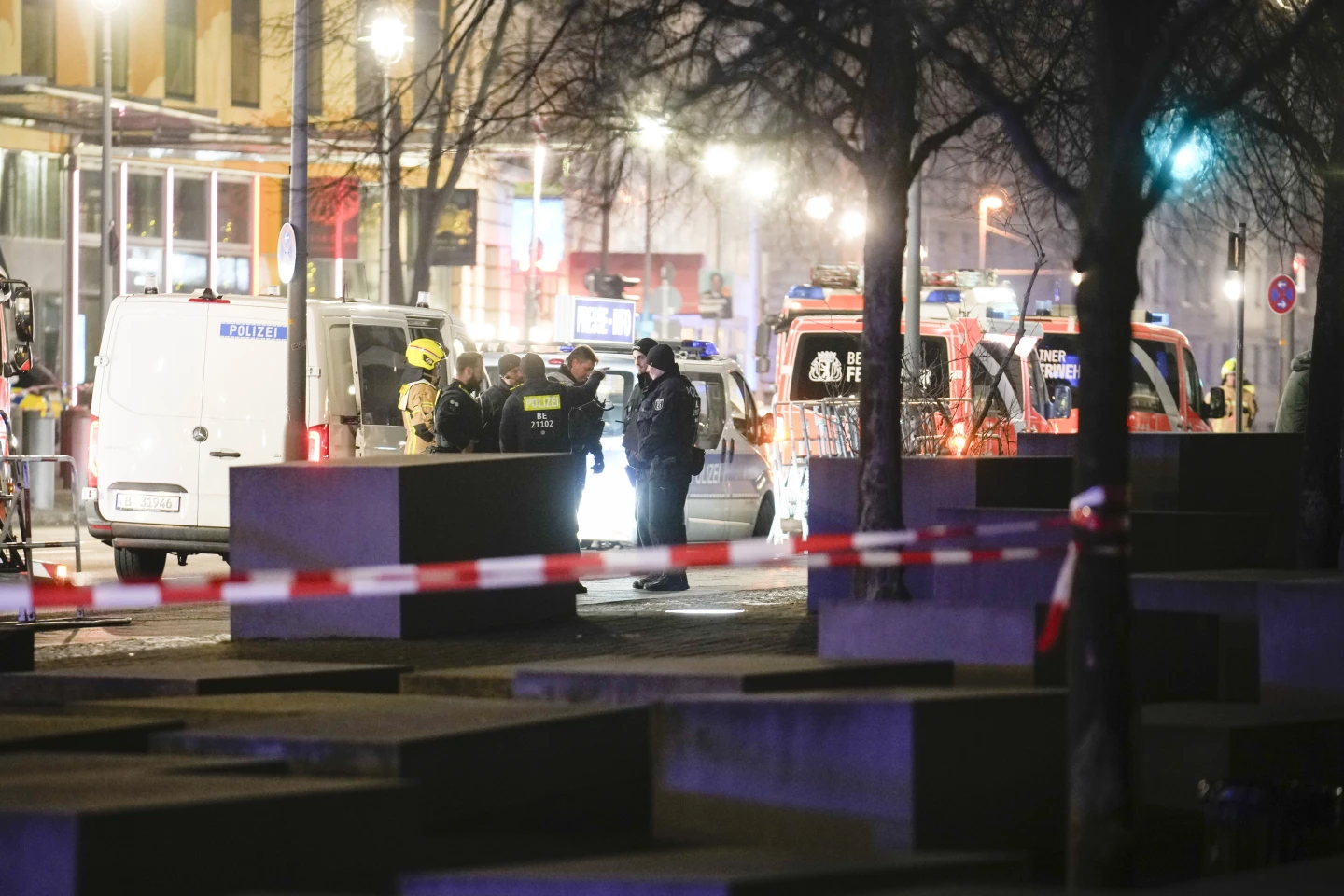A 19-year-old Syrian refugee was arrested after a Spanish tourist was stabbed at Berlin’s Holocaust memorial on Friday. Berlin prosecutors confirmed that the suspect, who had blood on his hands and trousers, was apprehended shortly after the attack. The incident occurred on the eve of Germany’s national election, a time when migration issues are expected to fuel the rise of the far-right Alternative for Germany (AfD) party. The attack has added to the tense political climate, where concerns over migration and security are paramount.
Suspect’s Religious Motivation for Stabbing at Holocaust Memorial Linked to Middle Eastern Conflict
The suspect’s motives appear to be connected to his views on the Middle Eastern conflict, with prosecutors suggesting he had been planning the attack for weeks. The Holocaust Memorial, a site honoring the six million Jews killed during the Holocaust, was chosen deliberately.
Authorities also found a prayer rug, a Quran, and a note containing Quranic verses in the suspect’s backpack, indicating religious inspiration for the crime. This evidence points toward a religiously motivated attack, aligning with ongoing concerns about radicalization in the context of global conflicts.

The victim, a 30-year-old Spanish tourist, sustained serious injuries to his neck and required emergency surgery. Following the procedure, he was placed in an induced coma, though authorities confirmed that his condition was no longer life-threatening. The police investigation continues, with no evidence linking the suspect to other individuals or organized groups. The authorities are working to understand the full extent of the suspect’s motives and background.
Migration Concerns and Security Issues Influence German Election, Boosting Far-Right AfD Party
The attack occurred just before Germany’s national election, where rising concerns over migration and security are influencing voter behavior. The AfD, a far-right party, is predicted to secure second place in the election, fueled in part by a series of high-profile attacks involving suspects with migrant backgrounds. These incidents, including the killing of two people by an Afghan immigrant, have shifted political discourse, pushing migration issues to the forefront and contributing to the AfD’s surge in popularity.
The suspect, who arrived in Germany as an unaccompanied minor, had no criminal record and was previously unknown to the police or judicial authorities. Despite this, the attack has sparked further debates on migration policy and security in Germany. The suspect is set to appear before an investigating judge on Saturday, where an arrest warrant will be issued. The case continues to unfold, as authorities explore whether the attack was part of a larger network or isolated in nature.


